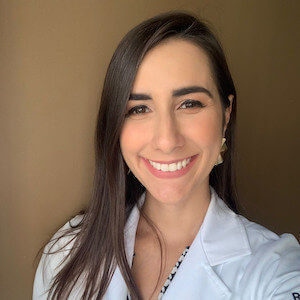When a miscarriage happens, the couple’s world falls apart. Trying again requires some physical preparation, and it can be a delicate matter depending on how the pregnancy ended. Generally, early miscarriages do not cause major problems but when the pregnancy was already in a more advanced stage, the doctor may be quite careful before allowing the woman to try again.
A pregnancy after an early miscarriage is not so concerning because up to the 10th week the body undergoes little change and the uterus does not go through significant alterations. This way, hormones can more easily return to their original levels and the doctor usually recommends only a rest period of 2 to 3 cycles before trying again1.
However, cases above 12 weeks of pregnancy or recurrent cases (which happen repeatedly) should be investigated. Miscarriages that occur later, such as after 20 weeks for example, require a longer recovery time. During this period, the uterus undergoes significant changes like the implantation of the placenta into one of its walls. This attachment creates wounds that need to heal completely so that there is no risk of infection or other issues. In such cases, the doctor will certainly recommend a normal recovery period similar to postpartum quarantine, and also that the woman should not get pregnant for the next 6 months.
During this waiting period, important precautions like tests to find out the reason for the premature birth or miscarriage should be arranged. For women who have experienced previous losses, it is good to have a test to detect possible thrombophilia. Another possibility that should be discussed is cervical insufficiency (IIC). This condition can cause losses later in pregnancy because the cervix can no longer support the baby’s weight. In such cases, a cerclage is needed to help the pregnancy reach term2.
There is no rule about how long to wait before attempting another pregnancy after a miscarriage, as the ideal time varies from woman to woman and case to case. What matters is to strictly follow medical recommendations so that the body is well recovered and prepared for the next pregnancy.
Remember: only a healthy body will result in an equally healthy and risk-free pregnancy
And What About the Psychological Factor? How to Cope With It When Trying to Get Pregnant After Miscarriage?
The maternal instinct is a crazy thing! It can influence us to resume trying before recommended by your doctor. However, becoming pregnant after a miscarriage requires balance both in body and mind. Rushing can be your enemy and lead to skipping important steps in the body’s recovery. The physical aspect is essential and must be 100% for a new pregnancy.
Pregnancy after a miscarriage should come without major worries, so listening to your doctors’ recommendations is a great idea. Even if your mind says go ahead, it’s important to stop and think about what is best for you at that moment. Physical recovery should complement mental health3. Certainly, a woman will feel much calmer knowing her health is ok and that the new pregnancy will progress healthily. Getting pregnant again right after a miscarriage and being filled with worries and fears because of the trauma is certainly one of the most frustrating experiences for any woman. A miscarriage or extremely premature birth often happens by misfortune. So, making sure that everything is fine with your body will bring a new pregnancy with total peace of mind for the couple.
Important Tip: women with a history of miscarriage should be extra cautious when starting to try again. For good nutrient replenishment, healthy ovulation, and quality sperm production, we recommend using Methylfolate, the active form of folic acid. You can learn more about Methylfolate here.
See also: Miscarriage – I’ve Been Through This Too












